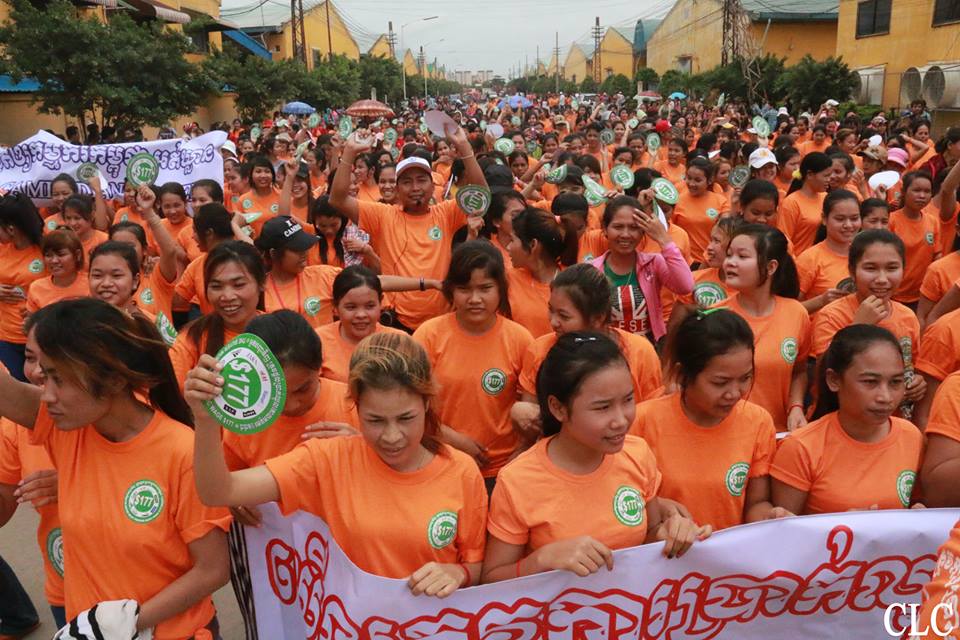Cambodia’s draft minimum wage law would prohibit unions and other civil-society organizations from contesting the country’s minimum wage and would go so far as to restrict their ability to even conduct research to craft minimum wage options, according to a legal analysis by the Solidarity Center and its partners.
“As it stands, the draft could potentially criminalize all forms of protest in relation to the minimum wage, which has been the motivation for some of the biggest demonstrations in recent memory,” says Chak Sopheap, executive director of the Cambodian Center for Human Rights (CCHR), which analyzed the draft.
“It is an affront to the constitutionally protected fundamental freedoms of expression, association and assembly, and must not proceed,” he says. (The analysis is available in English and Khmer.)
The law also would exclude many categories of workers, including domestic workers, civil servants, some transportation workers and workers in the informal economy.
Draft Law Blocks Worker & Union Input
“The government has routinely criminalized legitimate trade union conduct, in violation of international human rights law. The vague prohibition of ‘illegal acts’ in regard to pressuring the government over the minimum wage would seriously undermine the legitimate work of labor activists,” explains Jeff Vogt, legal director of the Solidarity Center’s rule of law department.
The analysis also notes that the draft law’s processes for wage-setting do not guarantee union participation and give significant discretion to the labor minister to set minimum wages based on employment sector and geographic region, which threatens “to undercut the objectives and spirit of the law.”
Minimum Wage for Garment Workers Not a Living Wage
In recent years, tens of thousands of garment workers across Cambodia, most of them women, waged a series of mass protests demanding a living wage.
A 2015 study of garment workers and their expenditures, conducted by labor rights groups, including the Solidarity Center, indicated that garment workers earned far less than they need to cover expenses. Although the minimum wage for garment and footwear workers rose this year to $153 per month, up from $140, some union representatives says it still falls far short of a fair living wage.
The analysis recommends amendments and additions to the draft law that would bring it in line with international human rights law and constitutional human rights guarantees. The Solidarity Center, CCHR and the International Trade Union Confederation (ITUC) compared the draft law with international standards and best practices, including the International Covenant on Civil and Political Rights, the International Covenant on Economic, Social and Cultural Rights, and International Labor Organization conventions.

